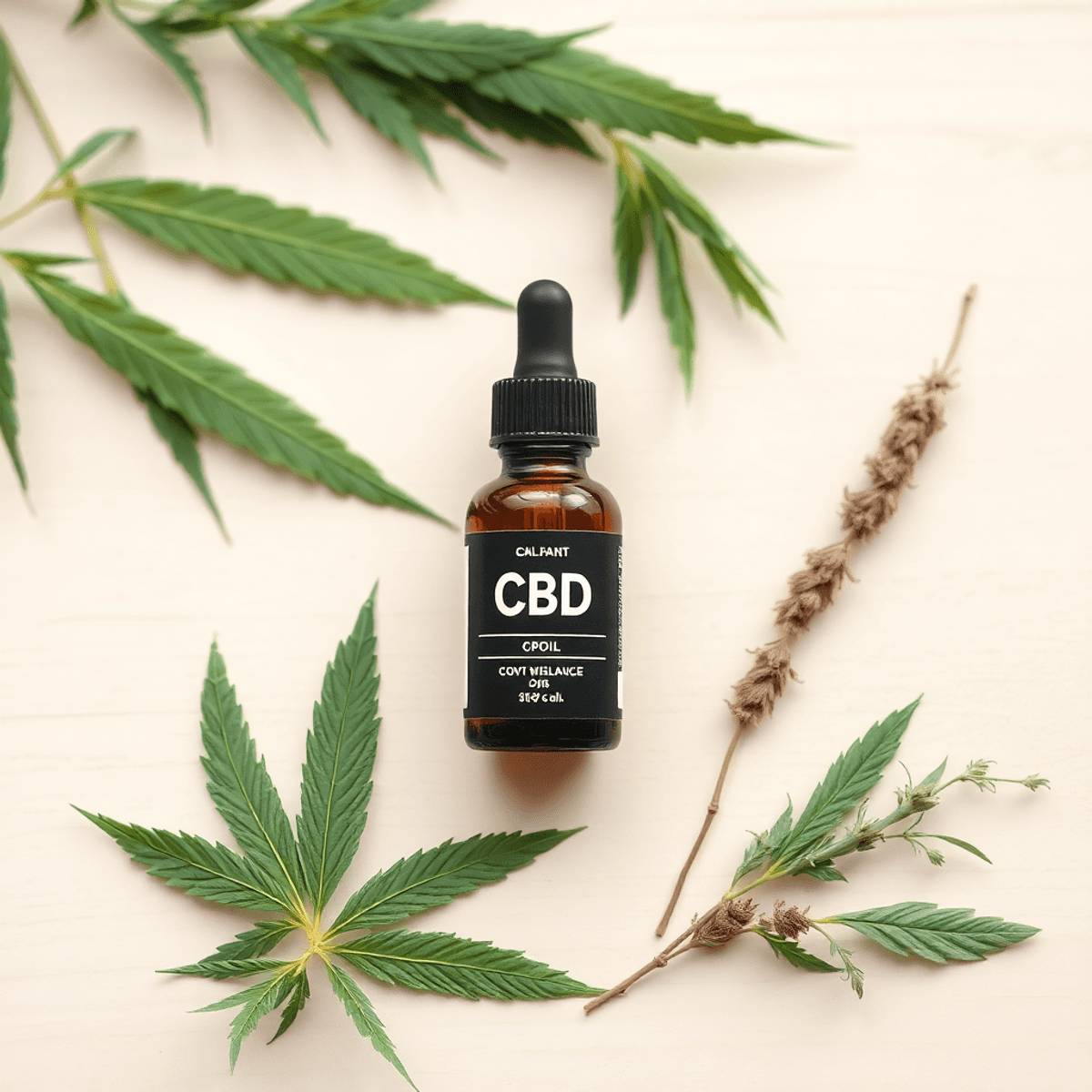CBD oil has become a popular topic in wellness circles, often promoted as a natural remedy for everything from anxiety to chronic pain. Extracted from the cannabis plant, this compound—cannabidiol—offers potential health benefits without the intoxicating effects of THC. For people pursuing holistic approaches to self-care, understanding what CBD oil actually does is essential.
Before incorporating CBD oil into your regimen, it’s important to weigh both its possible benefits and known risks. Not every claim is backed by solid research, and incorrect use can lead to unwanted side effects or drug interactions. For instance, if you’re considering using CBD alongside other medications for weight management like Phentermine or Ozempic, it’s crucial to consult with a healthcare professional to avoid any adverse interactions.
The legal status of CBD oil adds another layer of complexity. Hemp-derived CBD products are widely available in many regions, yet laws differ by state and federal guidelines draw strict lines between hemp- and marijuana-derived oils. Reliable guidance helps you navigate these legal nuances and make informed choices about using CBD for wellness.
Moreover, if you’re looking into alternative methods for weight loss or management while using CBD oil, exploring options like the 96-hour fast could be beneficial. This fasting method has its own set of advantages and risks that should be understood before attempting.
In addition to weight management, some individuals may also be managing diabetes. If that’s the case, understanding the differences between medications such as Jardiance and Ozempic can provide valuable insights for better diabetes care.
Lastly, while exploring various health remedies including CBD oil, it’s essential not to overlook the importance of proper hydration which plays a vital role in overall health and wellness. Proper hydration can enhance cognitive performance, aid in weight management and significantly contribute to your overall well-being.
Understanding CBD Oil
CBD oil is a concentrated liquid extract made from the cannabis plant, specifically from its flowers, leaves, or stalks. The primary active ingredient in this product is cannabidiol (CBD)—a non-intoxicating compound found abundantly in both hemp and marijuana varieties of cannabis. While CBD is the focus in most wellness products, it’s important to recognize that cannabis contains over one hundred cannabinoids, each with unique effects.
CBD vs. THC: Understanding the Difference
A key difference between CBD and tetrahydrocannabinol (THC) lies in their impact on the mind and body:
- CBD: Non-psychoactive. It doesn’t produce a “high,” has no abuse or dependence potential, and interacts primarily with receptors involved in mood regulation, inflammation, and pain.
- THC: Psychoactive. Responsible for the high associated with marijuana use. It can cause euphoria, altered perception, and—at higher levels—anxiety or paranoia.
How Is CBD Oil Extracted?
Extracting CBD oil involves several methods, each affecting purity and quality:
- CO₂ Extraction: Pressurized carbon dioxide draws out cannabinoids without introducing harmful solvents. This method is prized for its safety and ability to preserve potency.
- Ethanol Extraction: Ethanol acts as a solvent to dissolve cannabinoids before being evaporated off. It yields large quantities but may strip out some beneficial plant waxes.
- Oil Infusion: Plant material is soaked in carrier oils (like olive or coconut) to infuse CBD. This traditional approach is simple but less precise.
The extraction method influences not only the effectiveness of the final product but also its safety profile—making it essential to understand what’s inside any bottle of CBD oil you’re considering.
Potential Benefits of Incorporating CBD Oil
In addition to its potential health benefits, including helping manage chronic conditions or enhancing heart health through positive experiences, incorporating CBD oil into your routine could also align with the latest breakthroughs in skincare technology. However, it’s important to remember that while CBD can be beneficial, it should be part of a balanced diet and healthy lifestyle for optimal results.
Health Benefits Supported by Research
Treating Epilepsy Syndromes
CBD oil has shown significant effectiveness in treating specific epilepsy syndromes, such as Dravet syndrome and Lennox-Gastaut syndrome. These conditions are often resistant to traditional medications, but scientific studies have demonstrated CBD oil’s ability to reduce the frequency and severity of seizures. The FDA-approved medication Epidiolex, which contains CBD, is a notable example of its successful application in epilepsy treatment.
Managing Anxiety Disorders
Preliminary research findings suggest that CBD oil can be beneficial for managing anxiety disorders, including generalized anxiety disorder and social anxiety disorder. Studies indicate that CBD may help reduce symptoms of anxiety by interacting with the body’s endocannabinoid system, which plays a role in regulating mood and stress responses. While more research is needed, the potential benefits make CBD oil an attractive option for those seeking alternative treatments for anxiety.
Improving Sleep Quality
Evidence supports the role of CBD oil in promoting better sleep quality and reducing symptoms of insomnia. By addressing underlying issues such as anxiety and chronic pain, CBD can help improve overall sleep patterns. Some studies suggest that CBD influences sleep directly by interacting with receptors involved in the sleep-wake cycle, making it a promising natural remedy for those struggling with sleep disorders. For more comprehensive strategies on improving sleep quality, exploring expert tips and techniques could be beneficial.
Alleviating Chronic Pain
The analgesic properties of CBD are another area of interest, particularly for individuals dealing with chronic pain conditions like arthritis or fibromyalgia. Research indicates that CBD may help alleviate pain by reducing inflammation and interacting with neurotransmitters responsible for pain regulation. This makes it a valuable option for those seeking non-opioid alternatives for pain management.
Exploring Additional Health Benefits
Exploring these benefits highlights the potential of CBD oil in wellness practices. Each application underscores its versatility and promise as a therapeutic agent across various health concerns. Moreover, the scope of wellness extends beyond just physical health; it also encompasses areas such as menopause-friendly nutrition, which can alleviate menopause symptoms and promote overall health during this transition, or insights into women’s health that empower individuals with knowledge about wellness, reproductive health, and preventive care.
Considerations for Safe Use and Quality Assurance
CBD oil users should be aware of potential side effects that can impact their wellness journey. Common reactions include:
- Drowsiness and fatigue
- Digestive issues like nausea or diarrhea
- Changes in appetite
- Dry mouth
- Mood changes, including irritability
High-Dose Risks
Taking excessive amounts of CBD oil without professional guidance can lead to:
- Elevated liver enzymes
- Severe drowsiness
- Decreased blood pressure
- Increased risk of falls
- Potential cognitive impairment
Drug Interactions
CBD oil can interact with several medications by affecting how your body processes these drugs. Critical interactions occur with:
- Blood thinners (warfarin)
- Heart rhythm medications
- Thyroid medications
- Seizure medications
- Some antidepressants
For instance, users of Ozempic may experience prolonged fullness, which could complicate the digestive side effects of CBD. Furthermore, those on Ozempic should be aware of potential gastrointestinal risks, including bowel injuries.
It’s also essential to understand that the use of CBD oil can lead to significant drug interactions, emphasizing the importance of professional medical guidance.
Safety Guidelines
Your safety checklist before starting CBD oil:
- Schedule a consultation with your healthcare provider
- Disclose all current medications and supplements, including any weight loss drugs like Wegovy, which has its own set of alcohol interaction guidelines
- Start with low doses
- Monitor your body’s response, keeping in mind the possibility of constipation from gut microbes
- Keep a symptom diary
Special Precautions
Certain groups need extra caution when considering CBD oil use:
- Pregnant or nursing mothers
- People with liver conditions
- Individuals with a history of substance abuse
- Those taking multiple medications, especially those interacting with CBD
- Patients scheduled for surgery
The lack of standardized dosing guidelines makes professional medical guidance essential for safe CBD oil use. Your healthcare provider can help determine appropriate dosing based on your individual health status and medication regimen. For example, if you’re considering using ketamine for anxiety, it’s crucial to discuss this with your healthcare provider as it may interact with your CBD usage or other
Quality Control Measures for Consumer Protection
Lack of FDA Regulation
The absence of FDA regulation on CBD products marketed as dietary supplements raises significant concerns. Without stringent oversight, ensuring the safety and quality standards of these products becomes challenging. Consumers are often left to rely on independent laboratory testing to verify the purity and potency of CBD oils. This lack of standardized regulation can lead to inconsistencies in product quality, potentially exposing users to contaminants or inaccurate labeling.
Key Points:
- Independent Testing: Essential for validating product claims.
- Consumer Vigilance: Necessary to avoid low-quality or harmful products.
- Quality Assurance: Critical for safe consumption.
In such scenarios, holistic stress management techniques can play a vital role. These practices not only help in managing the stress associated with such uncertainties but also promote overall well-being, making consumers more resilient in the face of potential health risks from subpar products.
Legal Status: Hemp-Derived vs. Marijuana-Derived CBD Oil Under Federal Law And State Laws Like New York City’s Cannabis Laws
The legal landscape for CBD oil is complex, primarily due to the distinction between hemp-derived and marijuana-derived products.
Federal Law:
1. Hemp-derived CBD
According to the 2018 Farm Bill, hemp-derived CBD containing less than 0.3% THC is legal at the federal level. This legislation removed hemp from the Controlled Substances Act, making it an agricultural commodity.
2. Marijuana-derived CBD
CBD derived from marijuana plants, which contain more than 0.3% THC, remains illegal under federal law. These products are still classified as Schedule I controlled substances, indicating a high potential for abuse and no accepted medical use.
State Laws:
1. Varying Regulations
Cannabis laws differ significantly across states and municipalities. For instance:
- In New York City, recreational use of cannabis has been legalized, allowing adults over 21 to possess limited amounts of cannabis and purchase from licensed dispensaries. However, there are strict regulations in place regarding where it can be consumed and sold.
- States like California and Colorado have also legalized recreational marijuana use but maintain stringent regulations around its sale and consumption.
- Conversely, some states maintain strict prohibitions against any form of cannabis use, whether recreational or medicinal.
Navigating these varying laws requires understanding both federal guidelines and local regulations pertinent to your location. Ensuring compliance with these laws is crucial for avoiding legal repercussions while using CBD oil products.
In addition to its legal status, the type of CBD oil you choose may also have implications on your health. For example, sublingual semaglutide, a non-invasive diabetes treatment option that enhances patient compliance and promotes weight loss effectively, is gaining traction as a viable alternative for those who might be using CBD oil for weight management or metabolic health reasons.
Moreover, incorporating practices like intermittent fasting, which recent research has shown to significantly impact metabolic health, could further enhance the benefits derived from any dietary supplements including CBD oil.
Conclusion
CBD oil has many potential benefits for health, like helping with certain types of epilepsy, anxiety disorders, and chronic pain. However, there are also risks involved, such as common side effects and possible interactions with medications. The legal issues surrounding CBD products can also make it difficult to access and use them.
To overcome these challenges:
- Know the laws: Understand the difference between hemp-derived and marijuana-derived CBD based on THC content.
- Choose quality products: Look for products that have been tested by independent labs to ensure safety and effectiveness.
- Talk to your doctor: This is especially important if you are taking other medications or thinking about using high doses.
When deciding whether to use CBD oil, it’s important to consider both the potential benefits and risks, as well as any legal restrictions and the quality of the product. For example, if you want to use CBD oil to relieve anxiety, it’s crucial to talk to your doctor about any possible interactions with medications like Ozempic, which is not safe during pregnancy.
In addition, if you’re looking into other treatments such as NAD+ injections, knowing the right dosage can help you get the most benefits while reducing risks. It’s also beneficial to make lifestyle changes like regular exercise that can greatly enhance your mental health.
Finally, if you’re a male considering hormone therapy, our guide on Testosterone Replacement Therapy (TRT) can offer valuable information about its effects on health.
FAQs (Frequently Asked Questions)
What is CBD oil and how is it used in wellness practices?
CBD oil is a product derived from cannabis plants, specifically extracted to obtain cannabidiol (CBD), a non-psychoactive compound. It is commonly used in wellness practices for its potential therapeutic benefits, including managing anxiety, promoting better sleep, and alleviating chronic pain.
How does CBD differ from THC in terms of effects and legality?
CBD (cannabidiol) and THC (tetrahydrocannabinol) are both compounds found in cannabis plants. Unlike THC, which causes psychoactive effects or the ‘high,’ CBD does not produce intoxication. Legally, hemp-derived CBD containing less than 0.3% THC is federally legal, whereas marijuana-derived CBD with higher THC content remains regulated or illegal under federal law.
What health benefits of CBD oil are supported by scientific research?
Research supports the effectiveness of CBD oil in treating specific epilepsy syndromes such as Dravet syndrome and Lennox-Gastaut syndrome. Preliminary studies also suggest potential benefits for managing anxiety disorders, improving sleep quality by reducing insomnia symptoms, and alleviating chronic pain conditions like arthritis and fibromyalgia.
What are the risks and side effects associated with using CBD oil?
Common side effects of CBD oil include nausea, fatigue, and irritability. There are risks linked to taking high doses without medical guidance. Additionally, CBD can interact with medications such as blood thinners, so consulting a healthcare professional before use is essential to ensure safety.
Is there FDA regulation ensuring the quality and safety of CBD products?
Currently, the FDA does not regulate CBD products marketed as dietary supplements, which means there is no guaranteed safety or quality standard enforcement for these products. Consumers should seek reliable sources and quality assurance measures when purchasing CBD oil to protect their health.
What is the legal status of hemp-derived versus marijuana-derived CBD oil under federal and state laws?
Under federal law, hemp-derived CBD oil containing less than 0.3% THC is legal nationwide. In contrast, marijuana-derived CBD oil with higher THC levels remains federally illegal but may be legal under certain state laws. For example, New York City has legalized recreational cannabis use but maintains specific regulations governing its sale and consumption.






